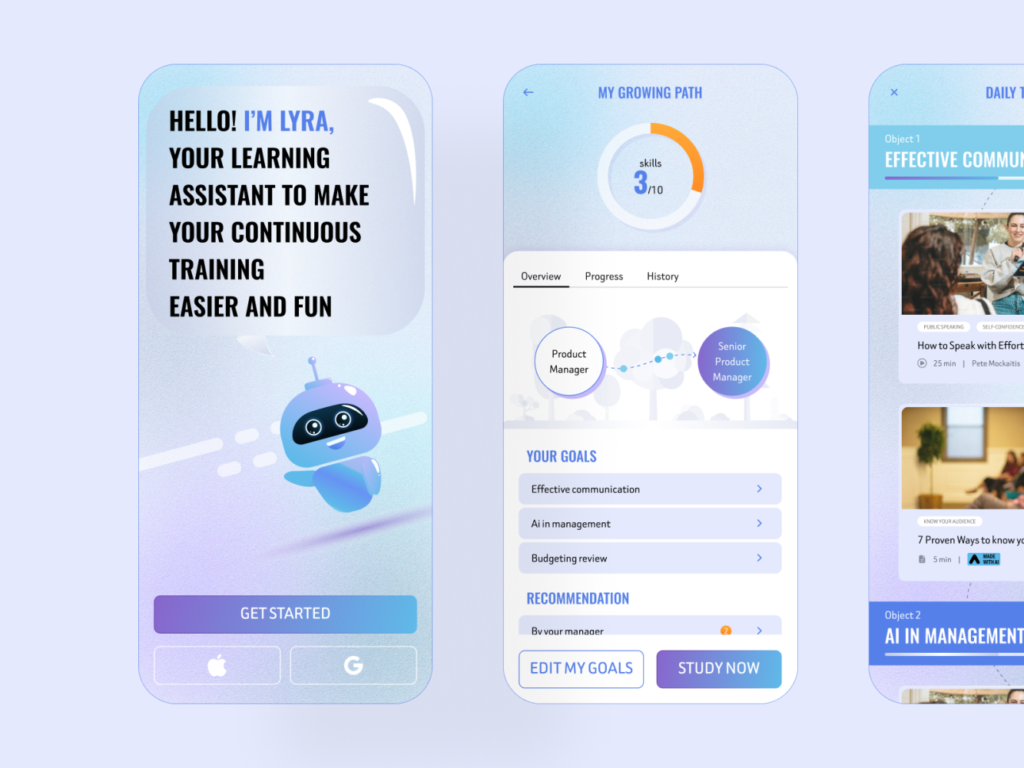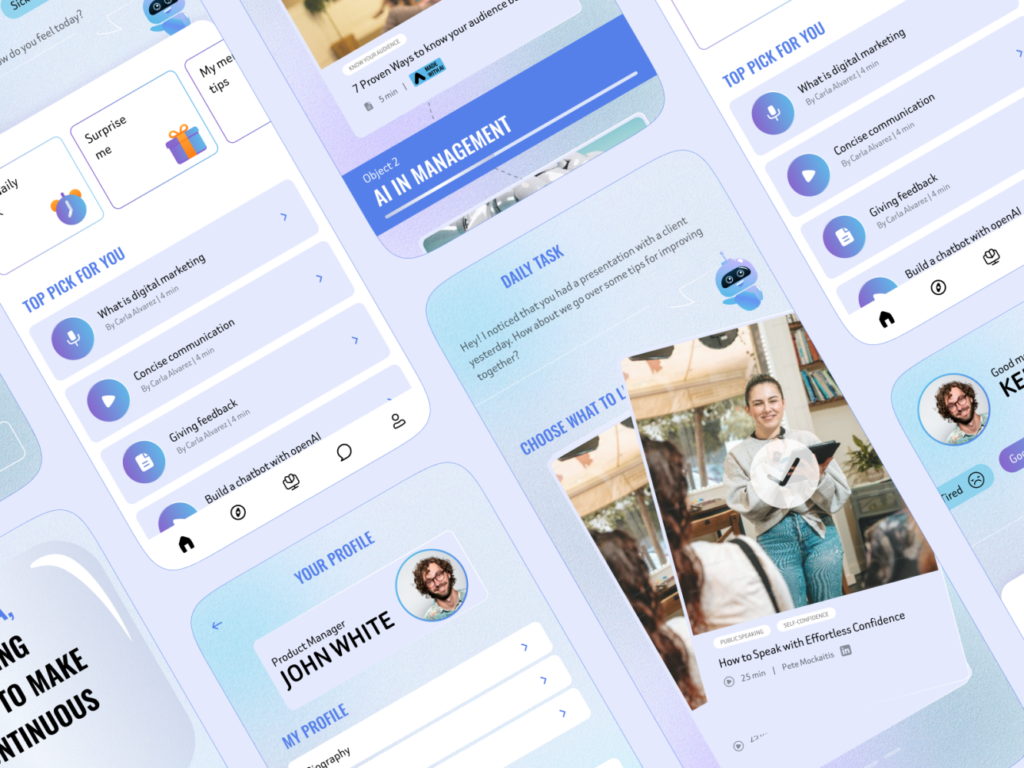AI Virtual Assistants: The Future of Personalized Continuous Learning
July 16, 2024
Elena Venieri

“I would like the magic wand to untangle myself in this magnum sea of AI news, courses and certifications. Just to understand how to train myself and remain attractive on the job market.”
Imagine Anna, a product manager with years of experience behind her, who suddenly finds herself needing to learn new skills to remain competitive in the job market. AI is on everyone’s lips and promises to revolutionise every sector, including creativity and design. However, course offerings are fragmented and generic, and Anna’s time is limited.
Let’s fast-forward five years. AI is now an established reality, and Anna continues to train, but this time with the help of an AI-based virtual assistant.
This virtual assistant is continuously trained with data from social media, company emails, the company intranet, the tools it uses, and Anna’s daily activities.
The virtual assistant could ask Anna to answer periodic surveys to assess her progress and needs.

What does it suggest to her?
The assistant suggests courses, articles and updates, whether newly created or already available, in order to guarantee a balance between highly personalised content and a real, empathetic confrontation with other professionals. This path is flexible, adapted to Anna’s work rhythm and interests.
It is a path based on market trends and the business choices of the company where Anna works. And last but not least, based on what Anna likes.
Pros
- Maximisation of Potential: Companies can make the most of employees’ skills and discover hidden talents.
- Continuous and Customised Training: Each employee receives a tailor-made training plan, which evolves with them.
- Career Development: Training is aligned with industry trends and business needs.
- Transversal Skills: Improvement of soft skills such as communication, time management and leadership.
- Efficiency and Effectiveness: Performance analysis to provide customised feedback.
- Democratized Access to Training: All employees have equal access to continuing education.

Cons
- Continuous Evaluation Stress: The feeling of being constantly under scrutiny can be stressful.
- Excessive dependency: Over-reliance on virtual assistants may reduce employees’ autonomy and decision-making capacity, making them too dependent on technology for their professional development.
- Lack of empathy: Even the best virtual assistants cannot completely replace the empathy and human understanding that one gets from a human mentor or coach.
- Limited interaction: The lack of face-to-face interactions may reduce opportunities for networking and developing professional relationships.
- Variable Quality: The quality of courses and training materials suggested by AI may not always be uniform or up to expectations.
- AI bias: AI algorithms might present biases, negatively influencing training recommendations and perpetuating existing biases.
The advent of AI-based virtual assistants represents a significant breakthrough in continuing education, allowing learning to be personalised and made more efficient and targeted. However, we cannot ignore the warnings raised about the potential cons of this technology. But the challenge is just beginning and it promises to be exciting.
And you, what do you think?